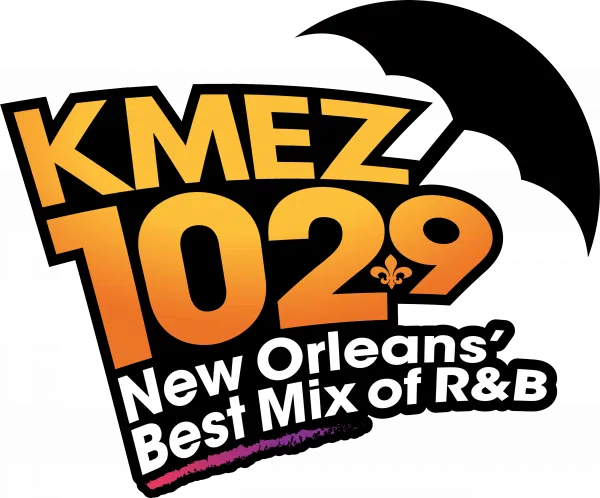The man who led military recovery operations 20 years ago, when the city was underwater after Hurricane Katrina, says people who need help might want to rely on each other and not the federal government.
The eye-opening comments come from a retired Lt. Gen. Russel Honoré whose presence loomed large after the deadly 2005 storm.
In a fiery, profanity-filled interview, Honoré does not hold back when he describes the response to the storm.
WARNING: The interview in the video player above contains profanity. Viewer discretion is advised.
The General:
In a candid, unfiltered conversation, WDSU’s Travers Mackel sits down with retired Lt. Gen. Russel Honoré in the latest “Faces of Katrina” report about what happened 20 years ago.
Hot off a helicopter and riding into New Orleans, barking out orders.
One passionate general was ordered into the city to lead military recovery and response efforts, as 80% of the city was underwater, and thousands of people remained stranded.
Lt. Gen. Russel L. Honoré, an Army veteran who toured the world, was that man.
Honoré spent his military career traveling the world, covering crisis events.
But in August of 2005, when the White House told him to take charge of a chaotic situation after the levees broke, he knew he had no time to waste.
Leaving a mark on then-Mayor Ray Nagin.
“Nagin made a comment. He said, ‘This John Wayne dude came rolling into town,’ you talk about things that stick — that stuck with people?” asked WDSU’s Travers Mackel.
“It did, it did — that was one of them one-liners that stayed there,” Honoré said.
“What do you think about that?” Mackel asked.
“Well, John Wayne was a (expletive) actor, and he could shoot the scene over, and that wasn’t the case there, and it stuck with a lot of people,” Honoré said.
A Louisiana native and Southern University grad, Honoré commanded Task Force Katrina: Military units on search and rescue missions, recovery efforts and evacuations, getting people out of the Convention Center and Superdome.
“I’m honored to have served — and the biggest contribution personally was to clean up the message — I get far too much credit than I deserve because the people who did the real work at the troops, and the first responders and the volunteers,” Honoré said.
Now 78 and retired, Honoré has written books, taught at Southern, and led the Louisiana Green Army.
An alliance of civic, community, and environmental groups and concerned residents from across Louisiana dedicated to winning meaningful climate change.
But when it comes to Katrina…
“I tell the story from where I saw it,” said Honoré, who WDSU interviewed on the bluff on Southern’s campus in Baton Rouge.
And while Honoré says the state and federal response to natural disasters is better since the 2005 storm, the retired 3-star general still has concerns.
“In a real disaster, the government will never (expletive) be there on time — it’s neighbors helping neighbors — that’s going to save lives. The government can provide food, water medicine and evacuate people — but when it comes to disaster — it’s the local people who save lives. Yeah, we had a detachment from the National Guard, but they were at Jackson Barracks, and their vehicles flooded,” Honoré said.
“People are going top say that means something coming from you, 20 years later,” Mackel said.
“If the government is on time, it wasn’t a (expletive) disaster — it was an inconvenience. We’ve never been there all (expletive) time for people that do you think we’re do you think we’re getting do you think the government’s getting better for people that’s waiting to save their homes or people that’s waiting to be evacuated you’re never there on time in a real disaster,” Honoré said.
“Having just said all that, people want to believe that in natural disasters, the government can help them — but you feel in the last 20 years, it’s still people helping people and neighbors helping neighbors even though were improved greatly since the storm?” Mackel said.
“In the lifesaving phase, it’s people helping people, and these governors need to get off their (expletive). Because now they say FEMA can handle it, I think Mussolini said any (expletive) cook can be a governor. Because right now, whether it’s Florida, Georgia, North Carolina, the storm hitting, and they said, ‘Where is FEMA?’ FEMA is not a 911 organization — they send generators — and we feel FEMA is going to be there the next day. It doesn’t work that way, bro,” Honoré said.
“Is there still too much red tape 20 years after Katrina?” Mackel asked.
“There’s a lot of people who don’t know what the (expletive) they doing. Governors, every one of them in a major disaster is learning on the job,” Honoré said.
Tough words from a retired general who led the military operation during one of the nation’s largest crisis 20 years ago after Katrina.
Honoré smoked his cigar almost the entire time we talked.
“May I send good spirits to those who survived Katrina and all those who are still learning lessons after Katrina. God bless America,” Honoré said.
Honoré — a military hero, tough talker back then and now, smoking his cigar the entire time we talked, and one of the many faces of Hurricane Katrina.








